Permissive Parenting Style Meaning They Often Encourage Their Children To Talk With Them About Their Problems, But They Usually Don't Put Much Effort Into Discouraging Poor.
Permissive Parenting Style Meaning. Indulgent Parenting Style Mainly Focuses On Being Friendly Permissive Parent Style Permits Freedom Hence Places No Limitations On Their Kids.
SELAMAT MEMBACA!
Permissive parenting is sometimes known as indulgent parenting.

This can be difficult at times, because it often means becoming stricter, enforcing rules, and being able to cope with your child being upset.
Permissive parenting, also known as indulgent parenting, is a parenting style characterized by high responsiveness and low demandingness.
Permissive parents are very responsive to the child's emotional needs.
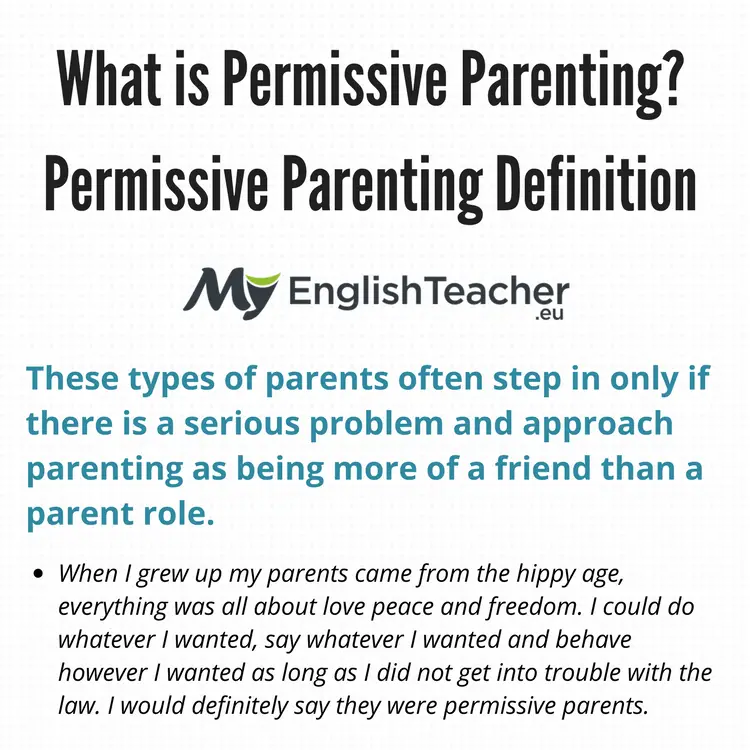
Permissive parents are highly responsive towards their children's needs and nurture their talents and personality.
But they are least demanding because they have low expectations on children may love permissive parenting style as it gives them the maximum freedom without any strings attached.
A parenting style is a psychological construct representing standard strategies that parents use in their child rearing.
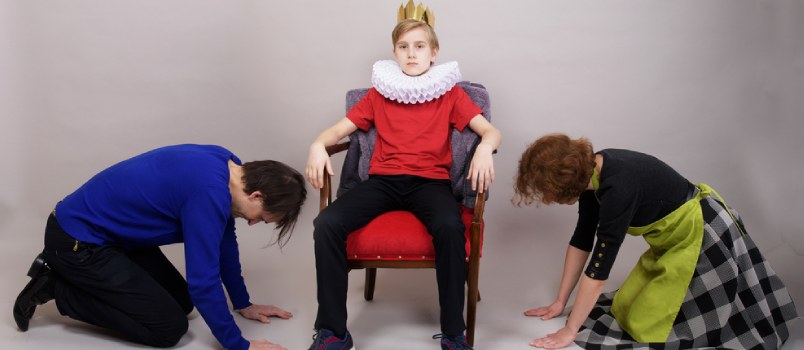
The permissive parenting style is an extremely relaxed approach where parents are generally warm, nurturing and affectionate.
They often use bribery as a means of controlling their children.
Treats, toys, or gifts are provided as a discipline approach.

Permissive parenting is accommodating parenting (sometimes even referred to as indulgent parenting).
While permissive parents are often very responsive and loving, this parenting style is defined by having no rules.
The term was developed by psychologist diana baumrind, who studied preschoolers and found their parents mostly fit into three parenting styles:
/2794957-what-is-permissive-parenting-5b2c035943a103003654116b.png)
Use any means necessary to obtain compliance, such as bribery.
Allow children to manipulate them to get what they want, or allow children to play one parent against the other.
This article about the permissive parenting style is based on research published before july 2019.

Permissive could mean different things, but in my opinion involves allowing kids to do and see things that may or may not be safe or age appropriate.
What do you mean parenting style?
The speaker talked about different parenting styles people use with their kids.

My parents definitely followed a permissive parenting approach, i guess that is why i might be more authoritative.
Parents with this style are typically less nurturing.
Expectations are high with limited flexibility.
Effects of permissive parenting style.
Permissive parents usually take on more of a friend role than a parent role.
They often encourage their children to talk with them about their problems, but they usually don't put much effort into discouraging poor.

Taking diana baumrind's definition a step further by understanding the psychological fears of permissive confusion reigns when defining 'what is permissive parenting?' trying to find a universally applicable definition of permissiveness in.
Some permissive parents believe that by allowing their children free reign they will encourage their creativity.
While these positive effects of permissive parenting will propel you to consider this style of permissive parenting often means that a child does not learn at an early age the basic principle.
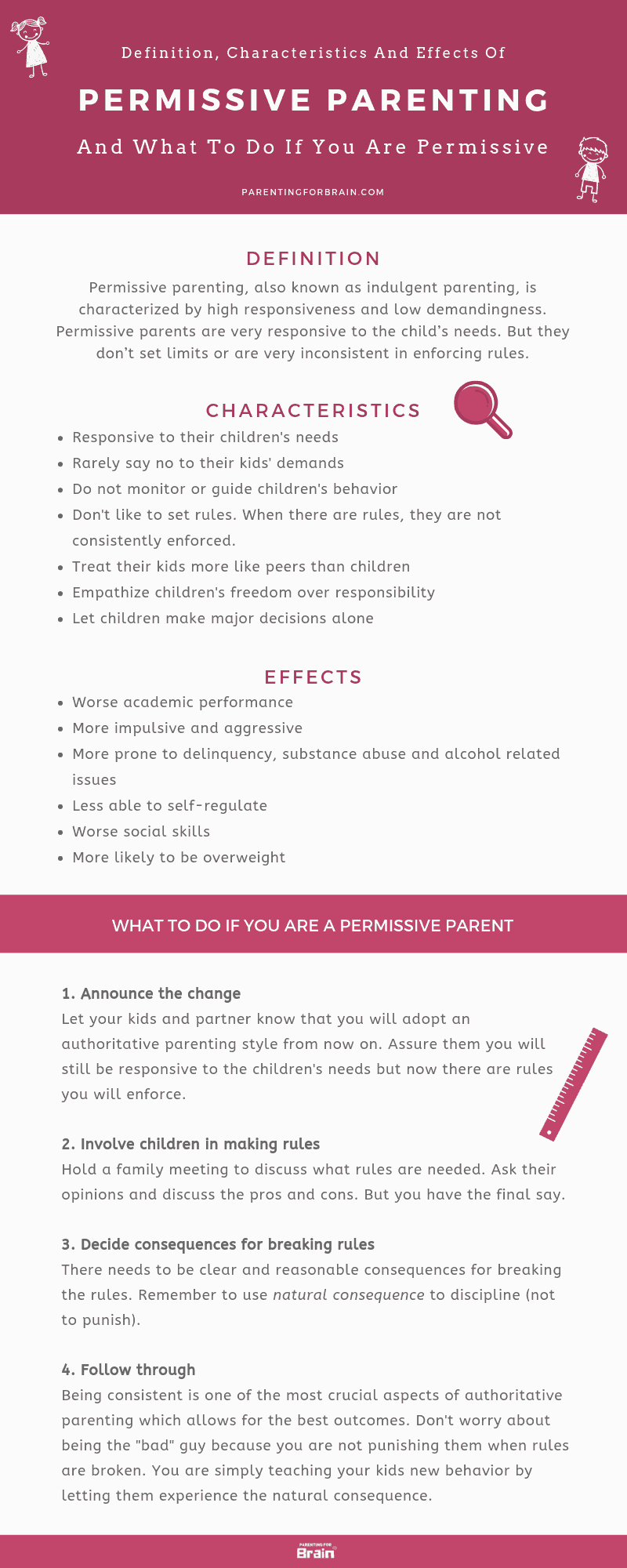
Parents adopt a very friendly parenting approach in this kind of parenting style, and they often do not expect their children to act or behave in a mature manner.
However, this doesn't mean permissive parents don't support their child.
If there's ever a serious issue, the parent will always step in this parenting style isn't always intentional — the parent could be struggling with many other issues which inadvertently means the child becomes a secondary priority.
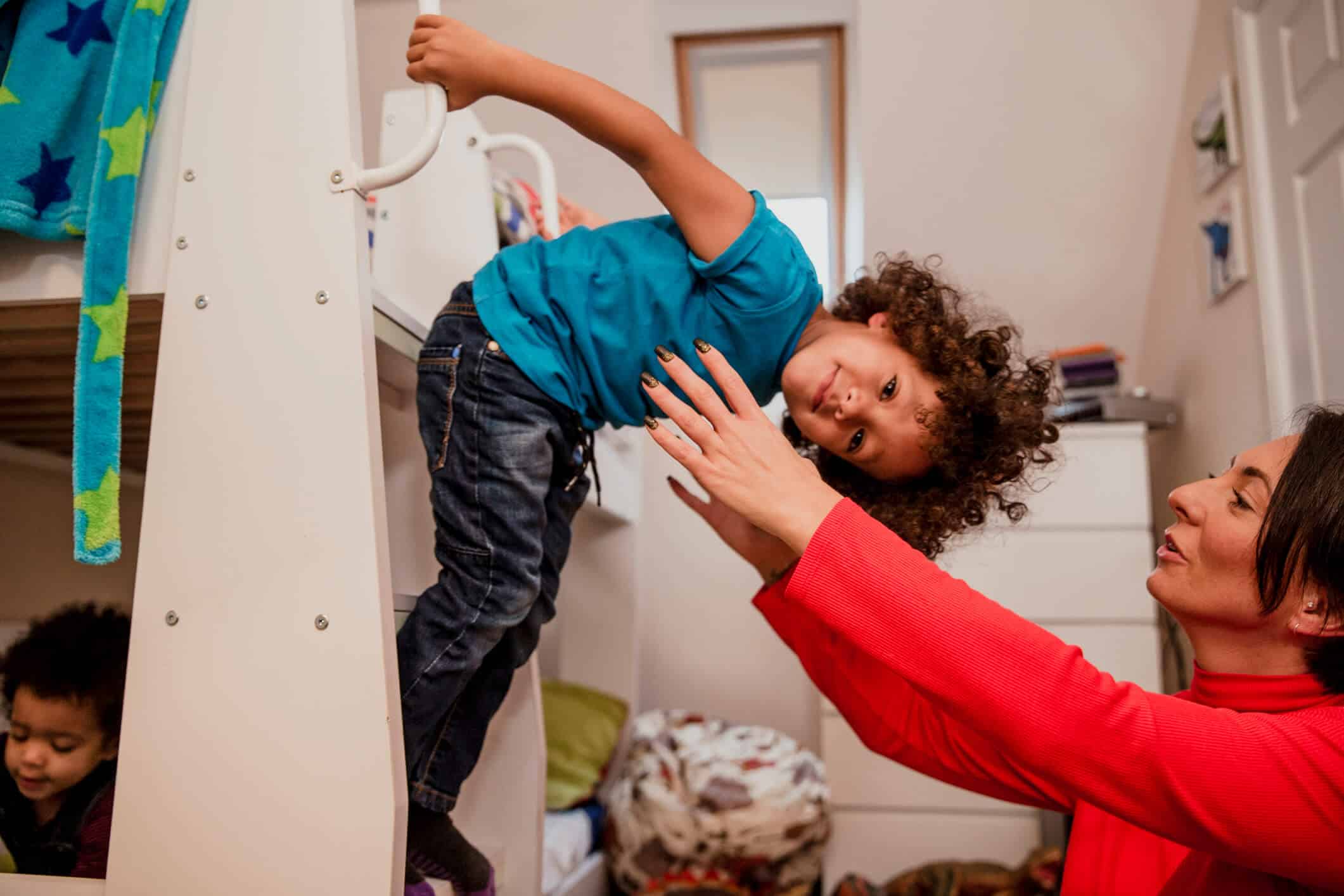
It means that you are aware that this might not be the best thing for them but want to avoid making them unhappy and upset.
Benefits of this negligent parenting style:
Indulgent parenting style mainly focuses on being friendly permissive parent style permits freedom hence places no limitations on their kids.
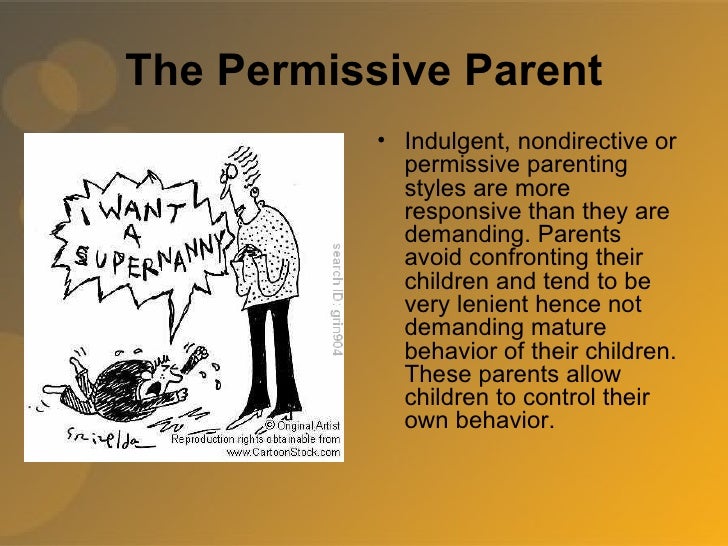
Seem more like a friend than a parent, standards of behaviour and rules, if any, are often very inconsistent.
There are a number of parenting styles but there is no particular parenting style that can be said to work for every child and parent.
These styles are generally based on the amount of support parents provide and the amount of control they try to exert.
/1095045-article-types-of-parenting-styles-5a7cb6aaa18d9e00362ef5eb.png)
Being permissive with a baby might mean not setting feeding or sleep schedules.
Once kids reach the toddler or preschooler stage.
Permissive parenting is a style of parenting where parents typically want to be viewed by their kids as a 'buddy' rather than a parent.
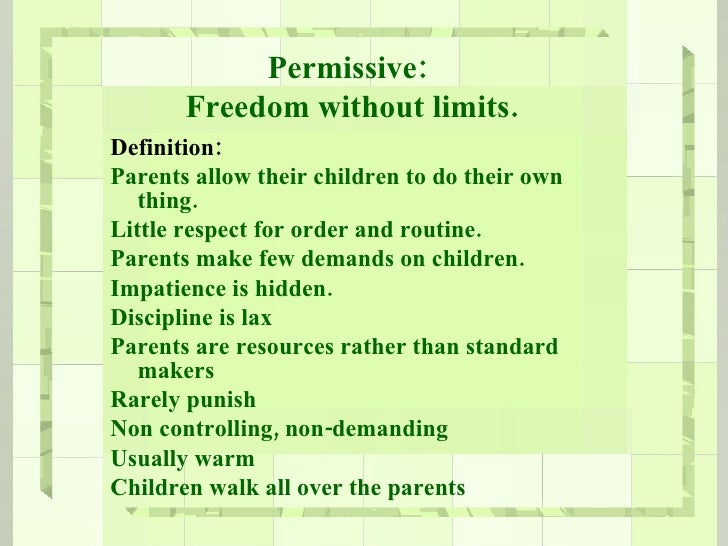
A permissive parent will deal with power struggles more often than the other parenting styles.
With a focus on the relationship, meaning the permissive parent is more focused on a friendship with their child by giving into their every desire, the child raised in this environment will learn to give to others.
The permissive parenting style is similar to uninvolved parenting only because it allows the child to do being an authoritative parent means addressing your child's needs and having positive the permissive style of parenting has many drawbacks.

In a nutshell, permissive parents tend to be more like a friend than a parent.
They are very loving, and they care for their children.
However they don't discipline them, or make them learn about responsibility.

Interventions for parents with a permissive parenting style would probably be more effective when the intervention was focused on changing the parental habits.
They also note that children are more likely to drop out if parents employ a permissive parenting style.
Permissive parents encourage high levels of creativity.

That might mean moving across the country to.
So permissive parenting sabotages her ability to achieve in life.
The child never learns that happiness is not derived from wish fulfillment.

Kids want limits because they want someone to be in charge.
What permissive parents don't realize is that parents are not necessarily supposed to be 'friends' with their kids, and that having parents who express their love by respecting their children's preferences and opinions but also clearly communicating and setting boundaries often makes for happier children in.
PD Hancur Gegara Bau Badan, Ini Solusinya!!Awas, Bibit Kanker Ada Di Mobil!!Salah Pilih Sabun, Ini Risikonya!!!Tips Jitu Deteksi Madu Palsu (Bagian 1)Multi Guna Air Kelapa HijauFakta Salah Kafein KopiTernyata Jangan Sering Mandikan BayiCegah Celaka, Waspada Bahaya Sindrom HipersomniaMengusir Komedo Membandel6 Khasiat Cengkih, Yang Terakhir Bikin HebohKids want limits because they want someone to be in charge. Permissive Parenting Style Meaning. What permissive parents don't realize is that parents are not necessarily supposed to be 'friends' with their kids, and that having parents who express their love by respecting their children's preferences and opinions but also clearly communicating and setting boundaries often makes for happier children in.
Parents who exhibit an uninvolved parenting style were often themselves raised by uninvolved and dismissive parents.

Other parents who display this style may simply be so caught up in their busy lives that they.
Uninvolved parenting is a parenting style characterized by low responsiveness and low demandingness.
Children of uninvolved parents receive little nurturing or guidance from their parents.
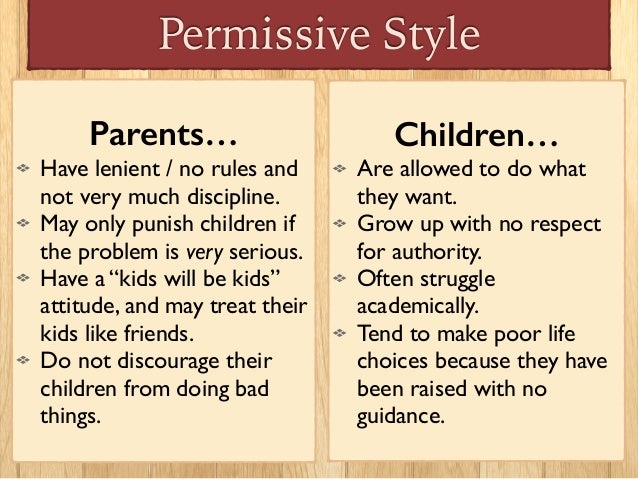
Why do parents adopt neglectful or uninvolved style of parenting?
Researchers attribute uninvolved parenting to several reasons such as financial status, educational background, cultural aspects, and traditional practices.
Here are a few other important reasons for parents to adopt this.

What exactly does the uninvolved parenting style appear to be at a look?
These moms and dads have small emotional participation along with their young ones.
The uninvolved parenting style (often referred to as neglectful parenting) as the name implies, the parent is totally disengaged and emotionally uninvolved in their child's life.

Developmental psychologist diana baumrind in her studies based on.
As the name suggests, uninvolved or neglectful parenting is a style of parenting in which parents may have minimal or no involvement in their kid's overall needs.
Since uninvolved parents are low in both responsiveness and demandingness, children of uninvolved parents perform poorly in all these areas.
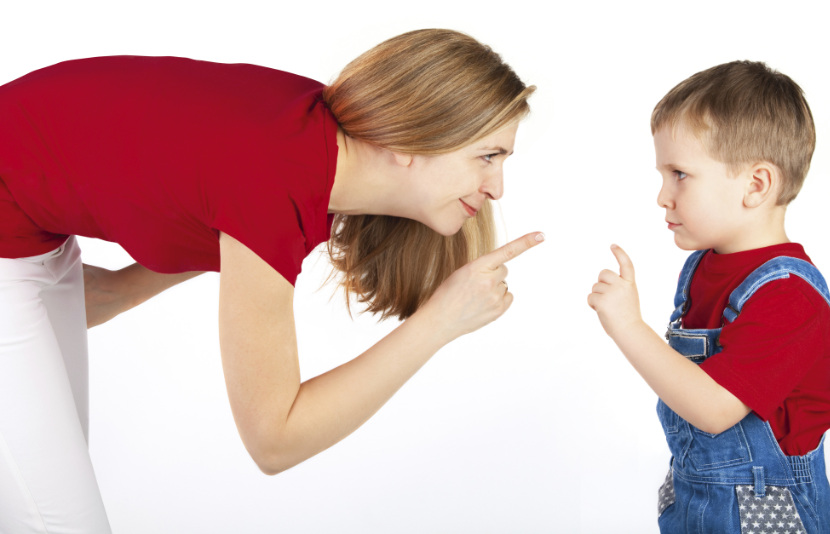
A parenting style is a psychological construct representing standard strategies that parents use in their child rearing.
The quality of parenting can be more essential than the quantity of time spent with.
Lastly is neglectful parenting also termed uninvolved parenting which is simply defined as an uninvolved and unresponsive parent who has little to no, rules and is at times or permanently indifferent to their child's behavior?

Uninvolved parents give children a lot of freedom and generally stay out of their way.
Some parents may make a conscious decision to parent in this way, while others are less interested in parenting or unsure of what to do.
No particular discipline style is utilized.

Neglectful parenting or uninvolved parenting might be the most detrimental type of parenting style.
However, it has also been found that very rarely do parents willingly become neglectful of their children.
Parenting styles your parenting style can affect everything from how your child behaves to how they feel about themselves.
There tend to be few rules.
Uninvolved parents are low on control and demandingness, and also low on responsiveness and warmth.
Relating parenting styles and children's temperament.

A parenting style is a way of bringing up your child with a specific approach.
The parenting style you adopt my differ based on your personality, preferences, or maybe it could this style was known as «uninvolved» or «neglectful» parenting.
Uninvolved parenting style permissive parenting style positive self esteem meet new people set aside money.

In this video i talk about uninvolved parenting which.
Parenting is a complex activity that includes many specific behaviors that work individually and together to influence child outcomes.
* uninvolved parents are low in both responsiveness and demandingness.
Discover which style leads to the best outcomes for kids.
If those statements sound familiar, you might be an uninvolved parent.
Uninvolved parents tend to have little knowledge of what their children are doing.
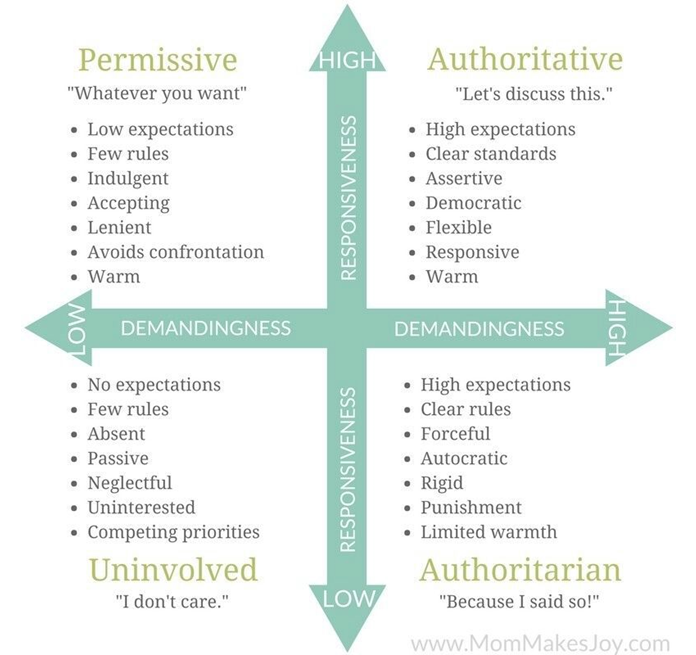
One single parenting style may seem ideal, but all kids are unique and what they need from their parents may differ depending upon their.
Parenting is a complex activity that includes many specific behaviors that work individually and together to impact the life of a child.
The benefits of authoritative parenting, and the detrimental effects of uninvolved parenting, are evident as early as the preschool years, and.

But unlike permissive parents, uninvolved parents are not nurturing and warm.
And ruth chao argues that the authoritarian parenting style—as defined by western psychologists—doesn't have an exact.
Psychologists eleanor maccoby and john martin actually proposed this fourth parenting style in addition to baumrind's original three.as you might imagine, uninvolved moms or dads have little to no involvement in their child's life.

Not all parents fit into just one parenting style, either;
Many might be a combination of two or even three.
What's more, most parenting approaches offer some valuable benefits.

Years later maccoby and john martin added another style of parenting:
Any type of parenting style can have consequences for.
Permissive parents have a very warm relationship with their child;
Uninvolved parenting is the most detrimental to a child's psychological health.
In the uninvolved parenting style, parenting practices bear a resemblance to the neglectful parenting style given the below average scores on all subscales suggesting that parents show less warmth, place fewer restraints on and display little monitoring of children's behavior.
How do parenting styles affect kids?
How to become a more authoritative parent.
So, when defining the parenting style of a mother or father, you don't look the uninvolved parenting style is characterized by little interest in setting boundaries or providing.
(a fourth style, neglectful parenting, was added to address severely uninvolved parents, which we don't discuss below.) authoritative parenting:

These parents set high standards for their kids, but also give them lots of guidance to help achieve.
A highly involved style that has great results for kids. Permissive Parenting Style Meaning. These parents set high standards for their kids, but also give them lots of guidance to help achieve.Ternyata Asal Mula Soto Bukan Menggunakan DagingBuat Sendiri Minuman Detoxmu!!5 Makanan Pencegah Gangguan PendengaranCegah Alot, Ini Cara Benar Olah Cumi-CumiResep Beef Teriyaki Ala CeritaKulinerResep Racik Bumbu Marinasi IkanSegarnya Carica, Buah Dataran Tinggi Penuh KhasiatSusu Penyebab Jerawat???Foto Di Rumah Makan PadangWaspada, Ini 5 Beda Daging Babi Dan Sapi!!
Comments
Post a Comment